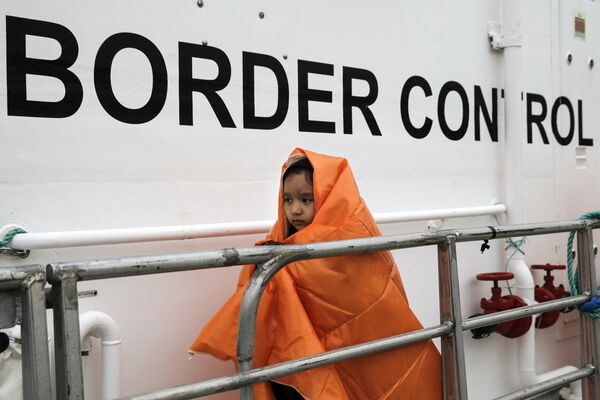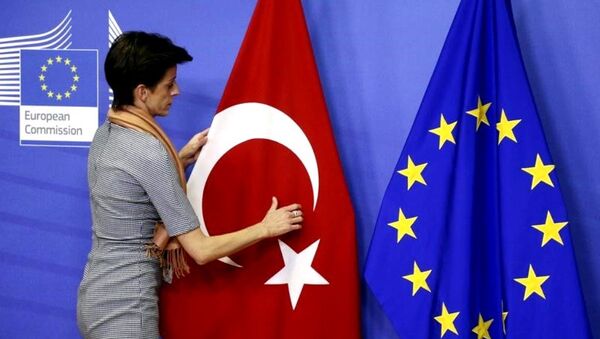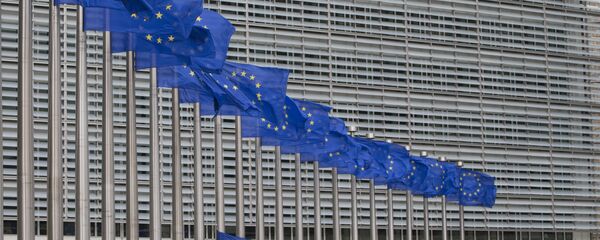Turkey is crucial to the EU at the moment as the union struggles to deal with the influx of migrant flooding across the Aegean Sea and the West Balkan route trying to find asylum in Europe. Greece and Italy have borne the brunt of the migrant trail, with tens of thousands living in cramped accommodation waiting to be processed.
The EU has brokered a deal with Turkey to accelerate Turkey's accession into the EU and grant visa-free access to Turkish citizens to the EU Schengen area by — first — the end of July and subsequently the end of October — both of which deadlines have passed.

Part of that deal included the relocation of "irregular migrants" — those refused asylum — from Greece back to Turkey, in return for US$3.26 billion in aid to assist Turkish refugee camps. However, many refugee NGOs — including the UNHCR — refused to cooperate, citing Turkey's poor record on human rights and conditions at its refugee camps.
The situation worsened following the failed attempted coup against Turkish President Recep Tayyip Erdoğan, after which he staged a series of crackdowns on opposition parties, the media and many civil servants, including the judiciary, the military and law enforcement agencies.
'Extremely Worrying'
EU High Representative/Vice-President Federica Mogherini made it clear in a statement released during the two-day meeting that all 28 member states agreed to express "very serious concern on the developments there — and we see constantly news confirming our worries".
#FAC ministers today discussed: #EUglobalstrategy, #Syria, #Turkey and relations w/ Eastern Partnership countries. https://t.co/pauWsLq1xm pic.twitter.com/pCPnrdimZe
— EU Council (@EUCouncil) November 14, 2016
Although she said channels of communications with the Turkish Government — as well as opposition parties — remained open, "it does not necessarily mean that we understand each other all the time."
Mogherini spelled out the major obstacles to any acceleration of Turkish accession to become a full EU member state, including: "Renewed considerations to introduce a bill to parliament to reinstate the death penalty; continued restrictions on the freedom of expression, including social media, with further closures of media outlets and arrest warrants against journalists […] and most recently the arrest of the co-chairs of the country's second largest opposition party, HDP, as well as the detention of several of its Members of Parliament."
Talking to press ahead of Foreign Affairs Council. I'll present plan on EU #defence. Also #Turkey #Syria #Libya #EaP pic.twitter.com/DUKUcEDmrA
— Federica Mogherini (@FedericaMog) November 14, 2016
She said the events "are extremely worrying developments which weaken the rule of law, the respect for human rights and fundamental freedoms and compromise parliamentary democracy in Turkey, while exacerbating tensions in the southeast and further polarizing Turkish society in general."
Unless consensus can be found on the issues raised by the foreign ministers and Mogherini, any deal over visa-free access for Turkish citizens to Europe, Turkish EU membership and the continuation of the migrant deal are likely to end in failure.



